Publications
The world needs to reassess the notion of poverty and the means for its eradication, according to a new report published by DESA’s Division for Social Policy and Development. The Report on the World Social Situation 2010 entitled “Rethinking Poverty” was critical of the current way that the international community identified and addressed poverty. The Report argued that “although the current monetary poverty-line approach...
There are over 370 million indigenous people in some 90 countries, living in all regions of the world. The situation of indigenous peoples in many parts of the world is critical today. Poverty rates are significantly higher among indigenous peoples compared to other groups. While they constitute 5 per cent of the world's population, they are 15 per cent of the world's poor. Most indicators of well-being show that indigenous peoples suffer disproportinately.
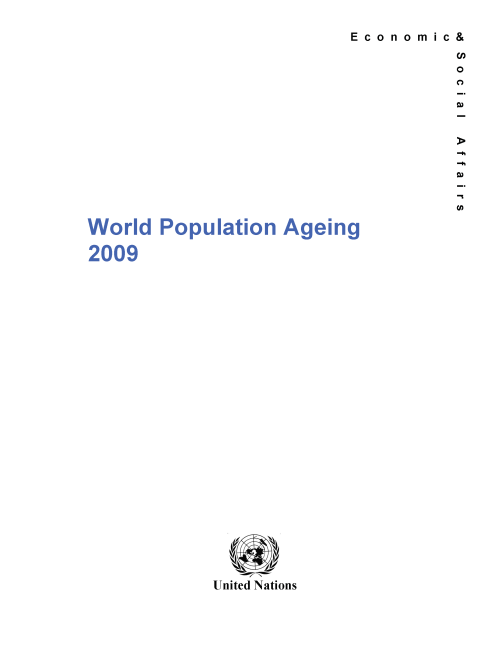
The World Population Ageing 2009 report, by DESA's Population Division, which updates the 2007 edition, provides a description of global trends in population ageing and includes a series of indicators of the ageing process by development regions, major areas, regions and countries. This new edition includes new features on ageing in rural and urban areas, the coverage of pension systems and the impact of the 2007-2008 financial crisis on pension systems.
The World Survey on the Role of Women in Development is the flagship publication of the DESA's Division for the Advancement of Women. It is presented to the Second Committee of the General Assembly at five-yearly intervals. The 1999 World Survey focused on globalization, gender and work and the 2004 World Survey addressed women and international migration. The General Assembly requested...
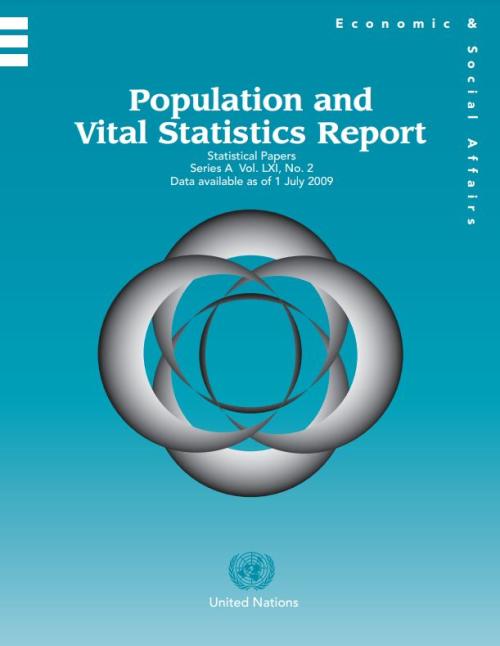
This issue of the Population and Vital Statistics Report presents data for countries or areas on population size (total, male, and female) from the latest available census, estimated total population size for 2006 or 2007 (the later available year), and the number and rate of vital events (live births, deaths, and infant deaths) for the latest available year within the past 15 years (1993-2007). These data are presented as reported by national statistical authorities.
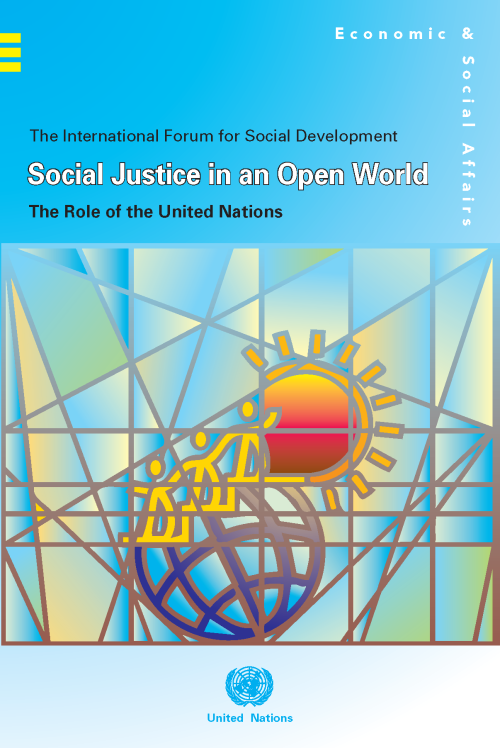
This publication provides an overview of the discussions that took place during the International Forum for Social Development, a three-year project undertaken by DESA for the purpose of promoting international cooperation for social development and supporting developing countries and social groups not benefiting from globalization. The outcomes of the meetings that took place during the Forum were also presented orally at the annual sessions of the Commission for Social Development.
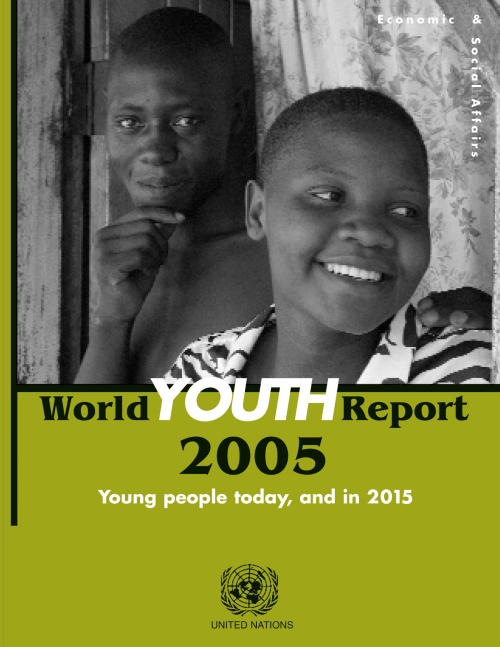
The year 2005 marks ten years since the General Assembly adopted the World Programme of Action for Youth in 1995. This report, an official report to the General Assembly, called for a renewed committment to the goals of the World Programme of Action, since over 200 million youth were living in poverty, 130 million youth were illiterate, 88 million were unemployed and 10 million young people were living with HIV/AIDS.
In the World Youth Report 2005, it is argued that too often, youth policy is driven by negative stereotypes of young people, including delinquency, drug abuse and violence. What seems to be forgotten is that young people are a positive force for development, peace,…
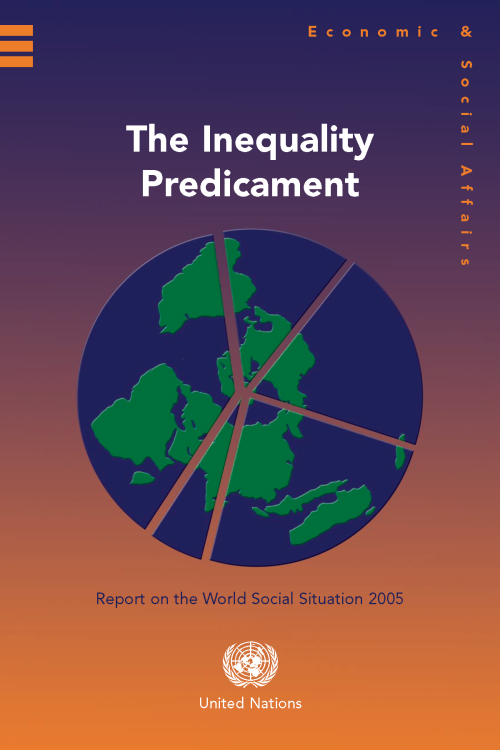
The 2005 Report on the World Social Situation: The Inequality Predicament was launched on August 25. The Report sounds alarm over persistent and deepening inequality worldwide, focusing on the chasm between the formal and informal economies, the widening gap between skilled and unskilled workers, the growing disparities in health, education and opportunities for social, economic and political participation.
The Report has been introduced by Mr. Jose Antonio Ocampo, Under-Secretary-General and Mr. Johan Schölvinck, Director, Division for Social Policy and Development, DESA on Thursday August 25, 2005.
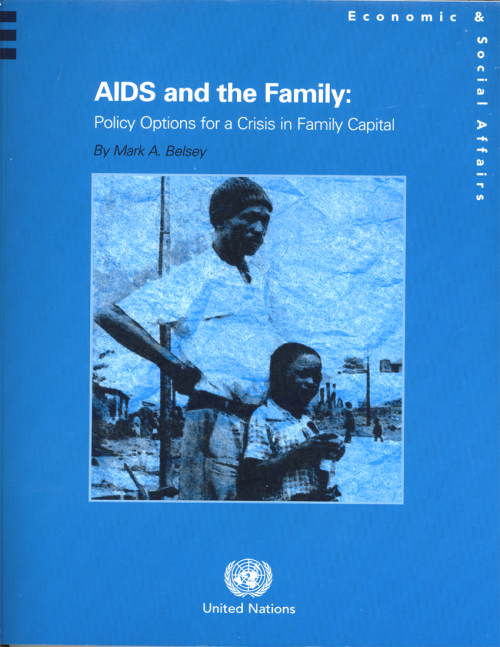
AIDS and the Family began five years ago, as a background document for the United Nations General Assembly discussions on the occasion of the Tenth Anniversary of the International Year of the Family. Intended as short overview in support of the activities of United Nations bodies and non-governmental organizations (NGOs), it was gradually expanded to include a review and analysis of the rapidly growing body of information, knowledge and international experience surrounding the HIV/AIDS epidemic.
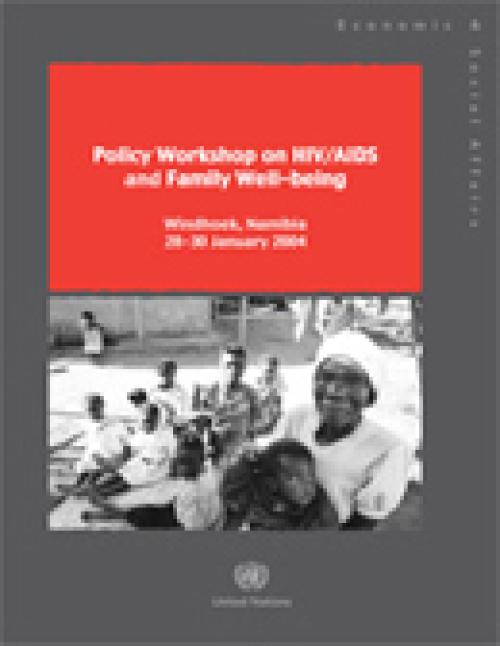
The Policy Workshop was organized by the United Nations Department of Economic and Social Affairs and hosted by the Government of Namibia, National Planning Commission Secretariat. It was held at Windhoek, Namibia. The purpose of the workshop was to bring together representatives of governments and non-governmental organizations as well as academic experts and practitioners from various countries in southern Africa to discuss the impact of HIV/AIDS on families in the region.
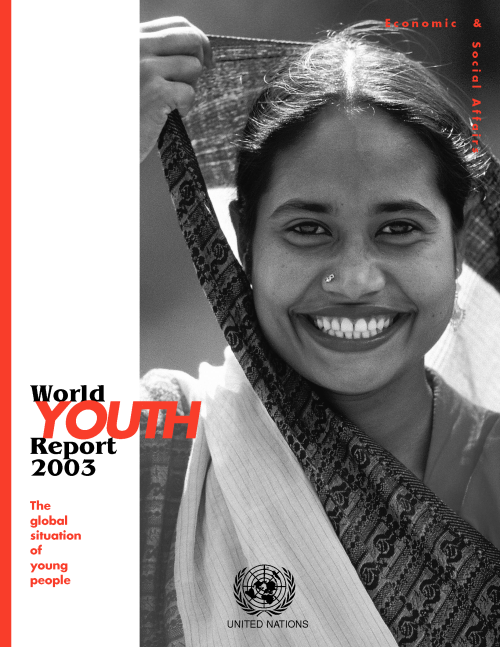
The World Youth Report 2003 provides an overview of the global situation of young people. The first 10 chapters focus on the priority areas identified by the World Programme of Action for Youth (WPAY), adopted by the General Assembly in 1995. The remaining five chapters address some of the newer issues that were later identified as additional priorities for youth and were adopted by the United Nations Economic and Social Council (ECOSOC) in 2003.
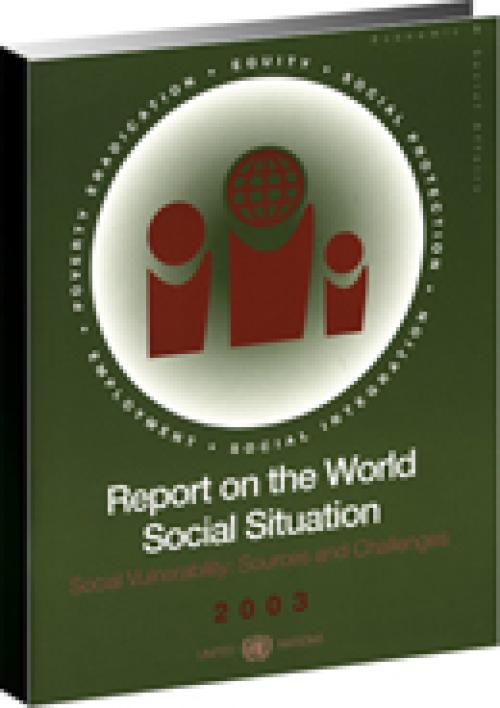
The 2003 Report on the World Social Situation is the sixteenth in a series of reports on the subject dating back to 1952. It is available as a United Nations sales publication. Its main theme is ” Social vulnerability”. The present Report is the first produced on a biennial basis. This is not, however, the only change to the Report. Its content should be seen as part of the new initiatives put forward by the Secretary-General in his quest to renew the capacity of the Organization to provide a space for genuine dialogue and to serve as a catalyst for effective action.
There are two new main features in the 2003 RWSS compared to previous reports.…
 Welcome to the United Nations
Welcome to the United Nations